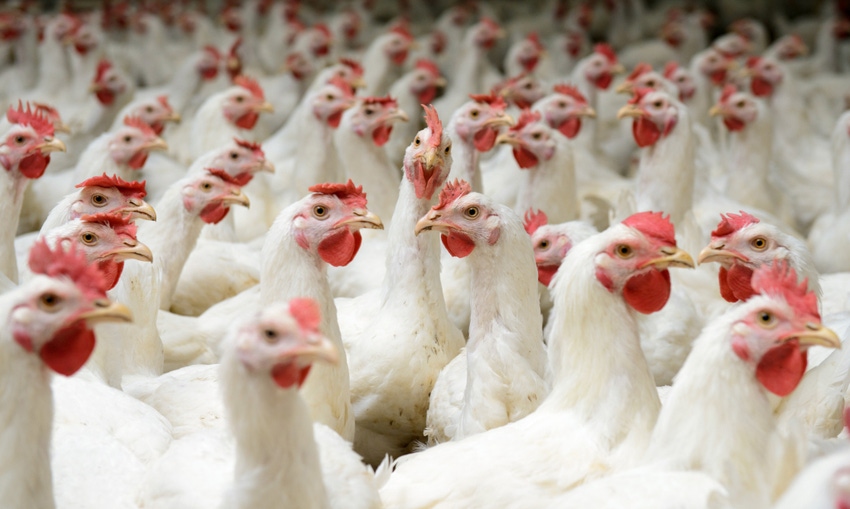Foster Farms was probably confident that it would prevail in a recent food borne illness court case but that's not how the judge ruled.

The good folks at Foster Farms were probably confident that it would prevail in a recent food borne illness court case. The Plaintiffs, the Craten family, couldn't prove they had purchased Foster's products. Knowing there was had a problem at the time, Foster Farms management had spent millions cleaning up salmonella contamination and shared its extraordinary steps with the rest of the poultry industry.
Still, the jury found Foster Farms guilty and the judge said $6.5 million. Foster was ordered to pay less than a third of judgment, though, because the judge said the family responsibility constituted 70% of the judgment.
A very odd ruling, I thought. Shouldn't the family have to pay the $4.55 million balance to someone or some organization? Or did the judge forgive the Craten's share of the total debt and just slap Foster with the remainder?
Nevertheless, Foster did the right thing, falling on both sides of the legally contrived twin bladed sword, possibly because the trial stemmed from a 2013 recall of an undetermined amount of product which sickened 634 people. It took 17 months for the U.S. Department of Agriculture to issue an all clear.
Foster Farms issued this post-trial statement about the verdict:
"Foster Farms recognizes the federal verdict in the matter of Noah Craten vs. Foster Farms. In reaching a verdict of $6.5 million associated with a 2013 Salmonella illness, the jury assessed 70% of the damages ($4.55 million) as being the responsibility of the Craten family, while assigning 30% of the damages ($1.95 million) to Foster Farms.
“It is important to note that family shopping records presented at the trial, covering the six month period prior to the onset of illness, failed to demonstrate the purchase of Foster Farms chicken. Regardless of the source of illness, Foster Farms is pleased that Noah Craten has recovered.
“It is in the interest of all poultry producers to ensure that the safest possible product reaches the marketplace. Since 2013, Foster Farms has instituted a multi-hurdle Salmonella control program and committed to a company-wide Salmonella prevalence level of 5% in whole body chickens and parts. This compares to the USDA permissible level of 9.8% for whole body chickens and 15.4% for parts.
“Foster Farms’ current food safety performance record is recognized as being among the best in the U.S. poultry industry, and the company is committed to advancing food safety for the benefit of consumers, customers and the poultry industry."
Responses from the poultry industry were quick and hand-wringing, pointing out the unfairness of the verdict. Where was the smoking gun, they asked? Shouldn't the family have proven they had bought Foster Farms products? No record of any kind existed. Doesn't that expose any processor to spurious legal action, even if it was an across-the-country competitor that produced the tainted product? Do those with the deepest pockets have to pay for the sins of someone else, some unknown villain who takes inadequate precautions?
Well, yes it does. But there is a more important business lesson to be learned.
If you produce food, the judge says you are at least partially responsible for what happens downstream. Did the supermarket overload a cold case and your package was exposed to higher than usual temperatures until a harmless bacteria load multiplied until it became lethal? Did the purchaser mishandle it -- and sooner or later, they will -- and become ill or die from a pathogen that can be traced back to your plant?
I can just hear it now. The sound of a judge's gavel slamming down as he says "Guilty! Pay the man $7 million."
"But, wait," you say, "I'm innocent!"
Too bad. Most good lawyers will advise you to write the check and get the verdict as far behind you as you can. Otherwise, business losses will continue to mount and your brand image will be even more severely tarnished. The unfairness of it all does not translate to cash you can take to the bank.
You can do these things immediately to try to protect yourself:
1. Review your HACCP plan to make sure it is as complete and up-to-date as possible.
2. Check your plant from top-to-bottom (ceiling to floor drains) to make sure there is no discernible E. coli, salmonella, Listeria or any other potential killer pathogen present.
3. If you find something, go to great and provable lengths to kill it.
4. Check your business insurance coverage to make sure you are not exposed.
Or you can just go ahead and write a big check with lots of zeroes behind the leading digit and wait for the plaintiff's lawyers to come calling. Keep it in your top desk drawer because you're probably going to need it.
I'll leave you with a great quote I heard from a USDA official way back in 1997 after the 25 million pounds of recalled Hudson Beef was the largest 'marketplace removal' ever. "There are only two types of businesses," he said. "Those that have had a recall and those that will have a recall."
About the Author(s)
You May Also Like



